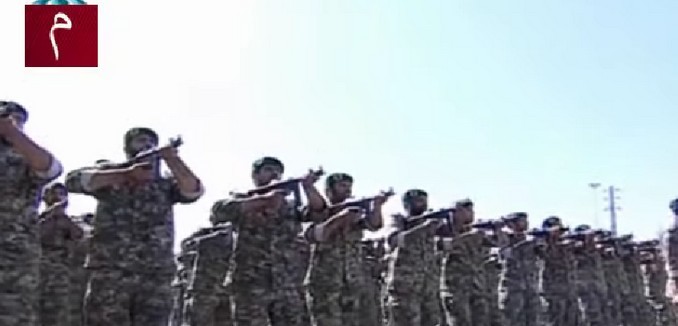Lamenting that the “the administration’s assurances are at odds with its actions,” a staff editorial in The Washington Post today expressed concern that President Barack Obama is prepared to accept increasing Iranian aggression in the Middle East in order to preserve the nuclear deal that the P5+1 nations are negotiating with Iran.
The president himself has provided much of the fuel for the speculation. According to news accounts, Mr. Obama has dispatched four private letters to the Iranian supreme leader, Ayatollah Ali Khamenei. The most recent one, in October, assured the ayatollah that the United States would not attack Iranian forces or those of its Syrian ally in operations against the Islamic State, according to the Wall Street Journal. Publicly, Mr. Obama said in an interview in December that he hoped a nuclear deal “would serve as the basis for us trying to improve relations over time”; if Iran agreed to the accord, he added, it could become “a very successful regional power.”
Such statements have understandably alarmed Mideast leaders at a time when Tehran is engaged in what Israeli Prime Minister Benjamin Netanyahu called a “march of conquest, subjugation and terror.” A relaxation of U.S. efforts to resist this bid for regional hegemony would be a strategic calamity for Israel and the Persian Gulf states. Saudi Foreign Minister Saud al-Faisal said after speaking to Mr. Kerry that it was “really the main concern of the Gulf Cooperation Council.”
Unfortunately, the administration’s assurances are at odds with its actions. While the nuclear negotiations have continued, Mr. Obama has refused to support military action against the Assad regime in Syria, in accord with his letter’s reported promise, and his administration has tacitly blessed an ongoing, Iranian-led offensive in Iraq’s Sunni heartland. It took no action to stop the ouster by an Iranian-backed militia of a pro-U.S. Yemeni regime. Nor has it reacted to Iran’s deployment of thousands of Shiite fighters to southern Syria, near the Israeli-occupied Golan Heights.
The administration’s repeated inaction prompted the editorial to ask, “Will [the administration] help its allies fight back, or will it restrain itself in the interest of preventing a rupture of the nuclear accord and in order to ‘improve relations over time’?”
The editorial concluded by agreeing with the president that a nuclear Iran would be bolder in expanding its influence throughout the Middle East, but warns, too, that the administration’s “current policies, combined with the lifting of sanctions, could have the same result.”
In a column written last month, the Post’s editorial page editor, Fred Hiatt, wrote that Obama’s “litany of unfulfilled assurances” about past foreign policy decisions made it important for there to be a “congressional buy-in” to any Iranian nuclear deal.
After initially endorsing the Joint Plan of Action, the editorial of The Washington Post have, in recent months, taken a more critical look the administration’s negotiating with Iran. Recent editorials have called on the West to “hold the line” on Iran, asked the president to work more closely with Congress to shape a deal, questioned Iran’s credibility in light of its harsh treatment of Post reporter Jason Rezaian, and called for even more diplomatic pressure to be brought against Iran.
[Photo: Monitor Mideast / YouTube ]




